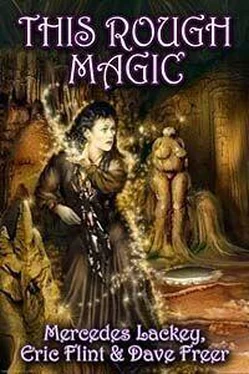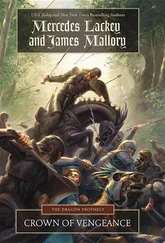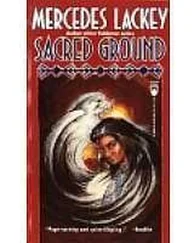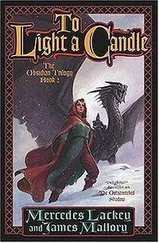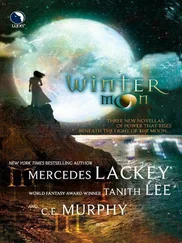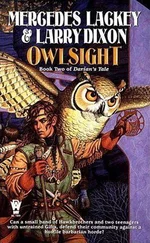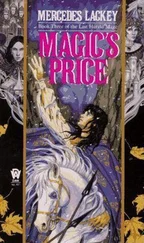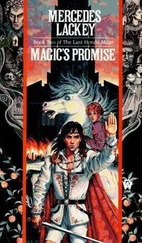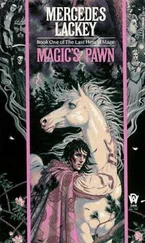Cringing means your limbs are bent. You're into a fighter's crouch with a moment's change of attitude. Benito didn't bother to aim. He just hit the arm of the hand that was about to catch the cudgel. Grabbing cloth, as the cudgel went flying harmlessly, Benito pushed the sailor over his outstretched foot. As the former-cudgel-wielder fell, Benito stepped forward, planting a boot firmly in the thug's solar plexus. His rapier was suddenly in his right hand, and the main gauche in his left. Finest Ferrara steel gleamed in the gray dawn-light. Fierce exultation leapt inside him, as he moved in for the kill. Already the moves, long practiced, were in mind. Engage. Thrust. He had the reach. Turn and kill the other one before he could get to his feet.
And then, as he saw the look of terror on the sailor's face, the battle-joy went away. Her words came back to him. "I won't marry a wolf."
He settled for hitting the knife, hard, just at the base of the blade, with the rapier. It did precisely what cheap knives will do, given that, to save metal, the tang into the hilt is usually much thinner than the blade. It snapped.
The sailor looked briefly at the hilt in his hand, and prepared himself to die. "I didn't plan to hurt you," he said, hoarsely, his eyes now fixed on the two unwavering blades facing him.
Benito flicked a glance at the other man, who was up on one elbow, feeling for his cudgel. Safety, prudence and Caesare said: "Kill them both, fast. Dead men are no threat. Desperate men are." Her words came back to him again: "Are you the son of the wolf or the fox?"
"I know you weren't," said Benito. "That's why you're still alive. But if your friend moves a muscle, that's going to change."
The sailor looked at his companion. "Then you'd better kill me, milord," he sighed. "That Brusco has no brains at all. He got us into this mess in the first place."
Benito stepped over to where the brainless Brusco was busy proving his lack of intelligence, by trying to get to his feet. A slash of the rapier severed the man's belt. By the piggy squeal Benito's judgement must have been a touch off.
"Stay down, Brusco," said the other sailor, urgently. "The Case Vecchie 'll kill you. Milord, he's still half-drunk. We . . . our ship left us. Winter's coming and berths are few now. We thought . . . some eating money . . ."
Benito snorted in exasperation, feeling as if he were fifty instead of seventeen. "Come on. Both of you. Up on your feet, you. Use both hands to keep those trousers up . . . Brusco. Now. In front of me. Quick march. You're no more than a pair of damned virgins in a brothel, in this part of town! You're not cut out for a life of crime, either of you. You're not local or you'd never have been so stupid. Where are you from?"
"Liapadhes. Kerkira . . . Corfu," the former knifeman said. He jerked a thumb at his companion, who was staggering along, holding up his trousers. "Brusco's from Bari. Down south."
Benito prodded the former cudgel-wielder with his rapier. "They must breed them big and dumb down there."
"I'm bleeding," said Brusco, sulkily.
They'd arrived at the canalside by this time. Benito flicked the complaining Brusco's shoulder with his rapier so the man turned around. So did his companion.
"Bleeding. Ha. You're lucky, Brusco, that I didn't cut your damn-fool balls off before you sired any dumb kids. Now listen to me, sailor from Bari. You get yourself out of Venice and don't come back. If you do, you'll be lucky if the canalers cut your throat before I find you. Swim or sell your shirt. But get onto the mainland and don't come back. Go." They both turned. Benito put out his rapier and halted the smaller man, the one with the black eye, who had once bought a cheap knife. "Stay."
The man looked wary, glancing at the canal.
Benito shook his head. "Don't be as much of a fool as the idiot from Bari. If I'd wanted to kill you, I'd have done it back there. Anyway, a couple of mouthfuls of that water is more likely to kill you than any sword-stroke.
"Here." Benito reached into his pouch, took out some silver pennies, and handed them to the would-be thief. "Get yourself some breakfast. Go that way along the fondamenta, and you're in a better part of town. And then get yourself along to the Dorma shipyards. Tell Alberto on the gate that Benito sent you. Tell him you're looking for a berth and that I said you'd do."
The Corfiote seaman looked at the money in his palm. Then he shook his head, unbelieving. "Why are you doing this?" he asked quietly. "I thought you'd hand us over to the nightwatch. I was looking for a chance to run."
"I needed a fight," said Benito, shrugging. "And I needed to sort out some things in my head. You obliged. I owe you. Now, I've got to find a gondola. You've straightened out my mind a bit, and there's a girl I've got say good-bye to. I was going to go drinking, if I couldn't find a fight."
The sailor shook his head again, and then smiled. "If it's all the same to you, milord, next time you're in need of a fight, I'm not going to be around. I thought I was going to be killed back there. One minute you were a scared kid. Then—you were somebody else. When I looked in your eyes . . . for a minute I thought I was dead."
Benito took a deep breath. "You very nearly were," he said quietly.
The sailor nodded. "A risk a thief takes. It's not something I've tried before, or I'm in a hurry to try again. And your girl should be very sorry you're leaving. Any chance I'd be shipping out with you, Milord?"
To his surprise Benito realized the man wanted him to be on the vessel. That was admiration in his voice. "I'm not shipping out." He waved at a dark, sleek gondola out on the Grand Canal. "She is. And as far as I can see she's not a bit sorry," he added, bitterly.
* * *
The gondolier had responded to his wave, and the vessel was just about at the canalside. Benito vaulted down into it, with athletic ease. "Bacino San Marco," he said, taking his seat.
"Morning, Valdosta. Or are you too important to greet us these days?"
Benito looked up. "Oh, hell. Sorry, Theobaldo. My mind was somewhere else."
The gondolier shrugged. "It's too late, boy. She's married and he's a fine man. Besides, she is one of us and you're one of them. It would never have worked."
Benito was not in the least surprised that the canaler knew all about his private life. He'd lived next to these canals himself for far too long not to know that the real lifeblood of Venice was not the water in her canals or the trade of her far-flung colonies, but gossip. When you and your brother are real, romantic heroes, nobles hidden in slums, who come into their own while saving the city in its hour of need . . . When your patron is the new Doge . . .
Well, suddenly everyone knows you. To be fair, on the canals, most of them had known his brother Marco anyway. Marco was pretty well regarded as the local saint, for his work in healing the poor and sick of the canals. He, Benito, had a fairly well-deserved reputation for being a thief and trouble, and a pack follower of the assassin Caesare Aldanto, until almost the last. He'd redeemed himself in the fighting, to be sure. Fighting was one of the few things he was good at, thanks in part to the treacherous Caesare, and thanks in part to his father's blood—neither of which most people regarded as good things.
Benito sighed. His skills: fighting, carousing and climbing buildings. None of the three seemed to fit him for the aristocratic mold Petro Dorma wanted to cram him into.
His half-brother Marco, on the other hand, was a gentleman born. Fitting into the Case Vecchie mold was easy enough for him, so long as he could go on with his beloved medical studies and seeing Katerina Montescue. Besides, ever since Benito's brother and the Lion of Venice had shared a body, Marco was . . . different. He was still the brother Benito knew and loved. But he'd always been the thinker. Benito was a doer, not a thinker. Marco was no longer unsure of himself, and now it was Benito's turn to be. It was something Benito had never been before.
Читать дальше
